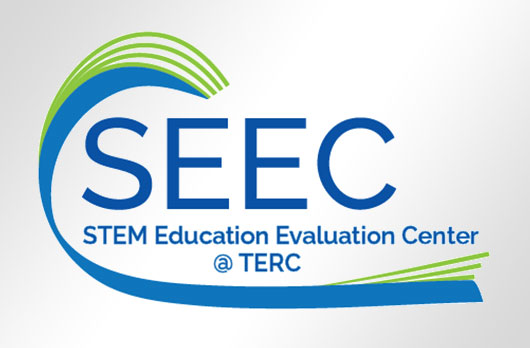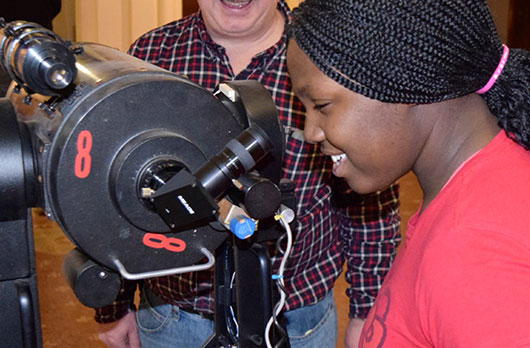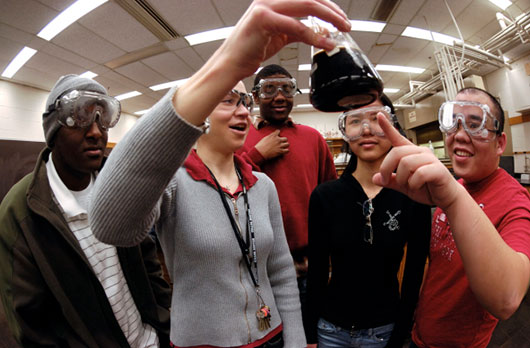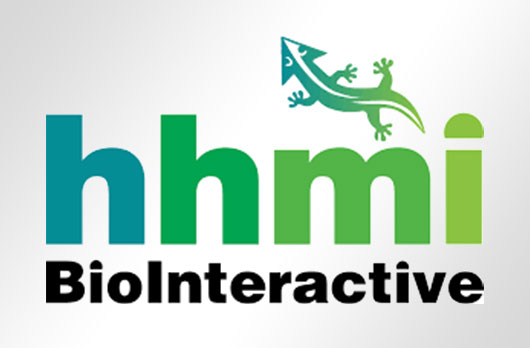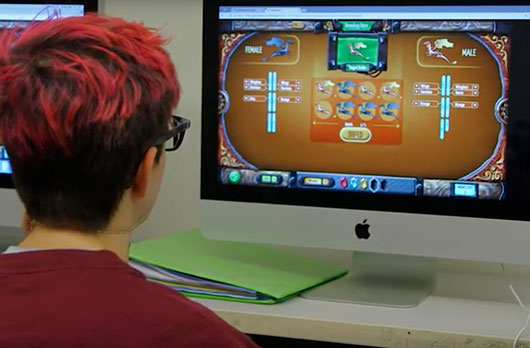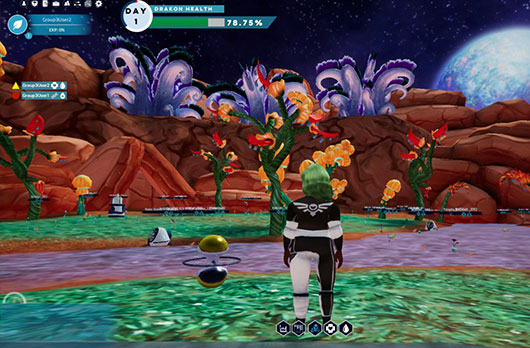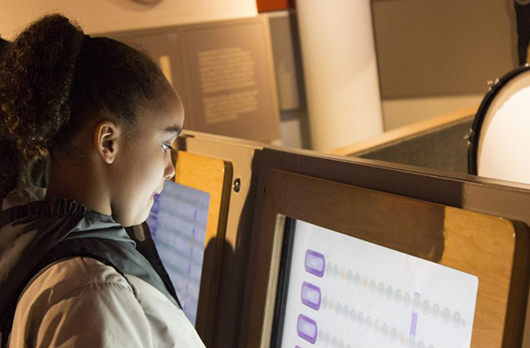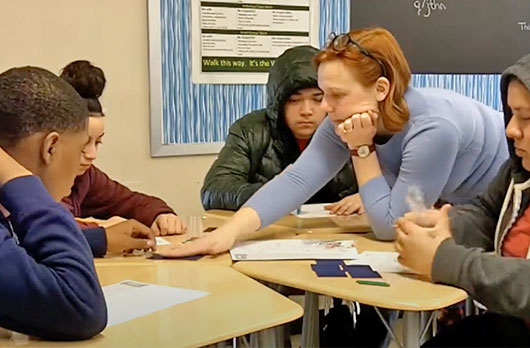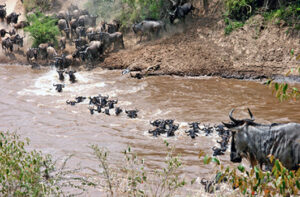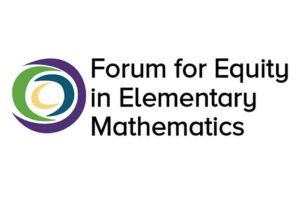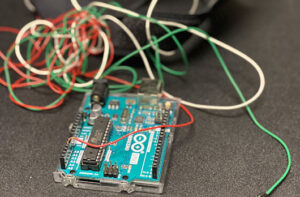STEM Education Evaluation Center (SEEC)
Cultivating a Spirit of Inquiry
Lead Staff:
Karen Mutch-JonesJim Hammerman
Project Staff:
Audrey Mart铆nez-GudapakkamDebra Bernstein
Eric Hochberg
Santiago Gasca
Sabrina De Los Santos
Michael Cassidy
SummarySEEC offers consultation, external evaluation, and research support for existing STEM education grants and programs and collaborates with proposal writing teams to design studies. SEEC staff respond to clients at various points in the process, focusing on needs assessments, formative development and feedback, summative outcomes, sustainability, and dissemination. Our projects range in scale from close observations of individual training events to implementation of multi-year, multi-site evaluations on local, state, and national levels.
SEEC staff are experienced quantitative and qualitative researchers who understand the affordances and constraints of different methods and approaches, and can design instruments and studies, collect and analyze data, and report results whether they are highly nuanced descriptions of a phenomenon, multi-faceted comparisons of outcomes, or evidence of causal impact.
As researchers, evaluators and principal investigators who focus solely on STEM education, SEEC鈥檚 expertise is grounded in theory and practice. SEEC works on the cutting edge of disciplinary, curricular, instructional, and methodological practices in STEM education.
Sample Projects
- (Innovators Developing Accessible Tools for Astronomy)
- LabVenture 12 Year Impact Study
EvaluationWith a focus solely on STEM education, SEEC鈥檚 evaluation work builds on 七色视频鈥檚 extensive experience developing and researching innovative curriculum, technologies, and professional development programs. SEEC鈥檚 work is on the cutting edge of disciplinary, curricular, instructional, and methodological practices in STEM education.
Various RolesSEEC’s evaluation work is tailored to meet your specific needs at any project stage:
- Conducting front-end evaluation to assess the interests and preferences of future learners, or to identify potential obstacles to address in a project
- Providing formative feedback about an innovation as it is being developed or implemented
- Offering oversight for complex projects through process evaluation
- Assessing the impact of a finished (or nearly finished) product or intervention through summative evaluation
Multiple MethodsSEEC Evaluators use a range of methods in their work including rich, qualitative descriptions of program activities and outcomes, as well as varied quantitative analyses. When appropriate, they also develop and implement experimental and quasi-experimental designs to test impact. Data might come from observations, individual and group interviews, surveys, logs and journals, artifacts, tests and assessments, automatically generated log files or transcripts of online interactions, and existing records and documents.
"Critical Friends"SEEC Evaluators all have experience working in STEM education. As a result, they serve as “critical friends” to their clients by providing thoughtful and relevant feedback based on their own expertise, while maintaining enough distance to identify assumptions and perspectives that might interfere with a rigorous evaluation. They will listen carefully to you, helping you think creatively and offering alternative views, to encourage a generative and collaborative relationship. SEEC Evaluators often work in teams, adding availability and a diversity of perspectives to their work.
Contact UsPlease contact us today to learn how we can help you with your research. Contact Us
SEEC offers consultation, external evaluation, and research support for existing STEM education grants and programs and collaborates with proposal writing teams to design studies. SEEC staff respond to clients at various points in the process, focusing on needs assessments, formative development and feedback, summative outcomes, sustainability, and dissemination. Our projects range in scale from close observations of individual training events to implementation of multi-year, multi-site evaluations on local, state, and national levels.
SEEC staff are experienced quantitative and qualitative researchers who understand the affordances and constraints of different methods and approaches, and can design instruments and studies, collect and analyze data, and report results whether they are highly nuanced descriptions of a phenomenon, multi-faceted comparisons of outcomes, or evidence of causal impact.
As researchers, evaluators and principal investigators who focus solely on STEM education, SEEC鈥檚 expertise is grounded in theory and practice. SEEC works on the cutting edge of disciplinary, curricular, instructional, and methodological practices in STEM education.
- (Innovators Developing Accessible Tools for Astronomy)
- LabVenture 12 Year Impact Study
EvaluationWith a focus solely on STEM education, SEEC鈥檚 evaluation work builds on 七色视频鈥檚 extensive experience developing and researching innovative curriculum, technologies, and professional development programs. SEEC鈥檚 work is on the cutting edge of disciplinary, curricular, instructional, and methodological practices in STEM education.
Various RolesSEEC’s evaluation work is tailored to meet your specific needs at any project stage:
- Conducting front-end evaluation to assess the interests and preferences of future learners, or to identify potential obstacles to address in a project
- Providing formative feedback about an innovation as it is being developed or implemented
- Offering oversight for complex projects through process evaluation
- Assessing the impact of a finished (or nearly finished) product or intervention through summative evaluation
Multiple MethodsSEEC Evaluators use a range of methods in their work including rich, qualitative descriptions of program activities and outcomes, as well as varied quantitative analyses. When appropriate, they also develop and implement experimental and quasi-experimental designs to test impact. Data might come from observations, individual and group interviews, surveys, logs and journals, artifacts, tests and assessments, automatically generated log files or transcripts of online interactions, and existing records and documents.
"Critical Friends"SEEC Evaluators all have experience working in STEM education. As a result, they serve as “critical friends” to their clients by providing thoughtful and relevant feedback based on their own expertise, while maintaining enough distance to identify assumptions and perspectives that might interfere with a rigorous evaluation. They will listen carefully to you, helping you think creatively and offering alternative views, to encourage a generative and collaborative relationship. SEEC Evaluators often work in teams, adding availability and a diversity of perspectives to their work.
Contact UsPlease contact us today to learn how we can help you with your research. Contact Us
With a focus solely on STEM education, SEEC鈥檚 evaluation work builds on 七色视频鈥檚 extensive experience developing and researching innovative curriculum, technologies, and professional development programs. SEEC鈥檚 work is on the cutting edge of disciplinary, curricular, instructional, and methodological practices in STEM education.
SEEC’s evaluation work is tailored to meet your specific needs at any project stage:
- Conducting front-end evaluation to assess the interests and preferences of future learners, or to identify potential obstacles to address in a project
- Providing formative feedback about an innovation as it is being developed or implemented
- Offering oversight for complex projects through process evaluation
- Assessing the impact of a finished (or nearly finished) product or intervention through summative evaluation
Multiple MethodsSEEC Evaluators use a range of methods in their work including rich, qualitative descriptions of program activities and outcomes, as well as varied quantitative analyses. When appropriate, they also develop and implement experimental and quasi-experimental designs to test impact. Data might come from observations, individual and group interviews, surveys, logs and journals, artifacts, tests and assessments, automatically generated log files or transcripts of online interactions, and existing records and documents.
"Critical Friends"SEEC Evaluators all have experience working in STEM education. As a result, they serve as “critical friends” to their clients by providing thoughtful and relevant feedback based on their own expertise, while maintaining enough distance to identify assumptions and perspectives that might interfere with a rigorous evaluation. They will listen carefully to you, helping you think creatively and offering alternative views, to encourage a generative and collaborative relationship. SEEC Evaluators often work in teams, adding availability and a diversity of perspectives to their work.
Contact UsPlease contact us today to learn how we can help you with your research. Contact Us
SEEC Evaluators use a range of methods in their work including rich, qualitative descriptions of program activities and outcomes, as well as varied quantitative analyses. When appropriate, they also develop and implement experimental and quasi-experimental designs to test impact. Data might come from observations, individual and group interviews, surveys, logs and journals, artifacts, tests and assessments, automatically generated log files or transcripts of online interactions, and existing records and documents.
SEEC Evaluators all have experience working in STEM education. As a result, they serve as “critical friends” to their clients by providing thoughtful and relevant feedback based on their own expertise, while maintaining enough distance to identify assumptions and perspectives that might interfere with a rigorous evaluation. They will listen carefully to you, helping you think creatively and offering alternative views, to encourage a generative and collaborative relationship. SEEC Evaluators often work in teams, adding availability and a diversity of perspectives to their work.
Contact UsPlease contact us today to learn how we can help you with your research. Contact Us
Please contact us today to learn how we can help you with your research. Contact Us

